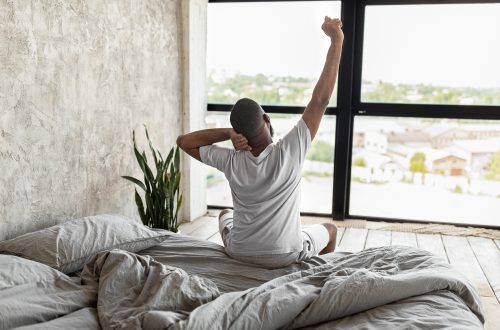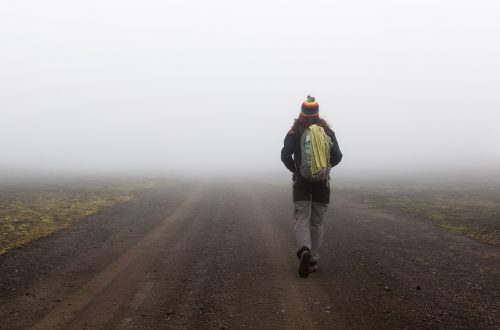For most of my life, mornings felt like an assault. Alarms jolted me upright, light barged through the curtains, and the day seemed to demand action before I had even figured out who I was in that moment. I used to treat waking up as a race — shower, clothes, coffee gulped down fast enough to burn my tongue, keys in my hand before I even had time to register how tired I still felt.
At some point, though, I realized I was carrying the weight of that rush long past the morning. By noon, I often felt frayed, like a shirt with a loose thread I kept tugging at. It wasn’t just exhaustion; it was a sense of being out of step with myself, as if the day had started running and I was still stumbling to catch up.
The change didn’t happen with a dramatic decision. There was no manifesto or neatly written routine taped to my fridge. It started with one small act: not touching my phone the moment I opened my eyes. I remember the first morning I resisted, staring at the ceiling instead, letting my mind float in that strange half-light between dreaming and wakefulness. It felt almost rebellious, as though I had stolen back a slice of time that belonged only to me.
From there, mornings began to stretch out, quietly, in ways I hadn’t expected. I began opening the window before I did anything else, letting the air roll in whether it was soft with spring or sharp with winter. I would stand there for a few minutes, breathing in the day before it fully began. It wasn’t meditation exactly — more like greeting the world without rushing to fix it or shape it.
What I discovered is that waking up slowly doesn’t mean doing less; it means noticing more. The way the floor feels cool against bare feet. The soft creases in my pillow, still holding the shape of sleep. The smell of coffee brewing, curling into the corners of the room before I even take a sip. Each of these details is small, almost invisible, but together they form a kind of anchor.
There are still mornings when the old urgency creeps in, when I oversleep or pile too many things onto my list. But I’ve noticed that even on those days, if I can give myself just ten quiet minutes at the start, the whole rhythm of the day shifts. It’s like adjusting the sails of a boat; the tiniest change can redirect the entire journey.
One of the strangest things about learning to slow down in the mornings is how it changes my relationship with time. Before, mornings felt like a door slamming open — no choice but to step through and run. Now, they feel more like a gentle invitation, a threshold I can cross at my own pace. The day will still be waiting, with all its demands and complications, but I no longer feel dragged into it unwillingly.
I’ve also learned that there is a quiet kind of luxury in not rushing. Even if my breakfast is simple — toast, fruit, a boiled egg — eating it slowly makes it feel intentional, like a small feast. I sometimes light a candle, not because I need the light, but because the flicker softens the edges of the morning. These small gestures remind me that life isn’t only about efficiency. It’s also about creating texture, giving ordinary moments a little weight and shape.
Of course, not every morning is poetic. Some are messy — dishes in the sink from the night before, emails already buzzing, hair sticking out in wild directions. But even then, I try to find a pause, however imperfect. Some mornings that pause is just standing still long enough to notice the light shifting across the wall. Other mornings it’s the first sip of water, cool and grounding. The pause doesn’t erase the chaos, but it does keep me from being swallowed by it.
What surprises me most is how this slow approach to mornings has spilled into other parts of my life. I no longer feel the same pressure to fill every gap in the day with productivity. Waiting in line, sitting on a bus, even folding laundry — all these moments feel different now. I’m less likely to see them as wasted time and more likely to see them as breathing room. It’s as though slowing down in the morning has taught me to spot pockets of stillness everywhere.
Sometimes I think back to how I used to live, darting from one task to the next as though my worth was tied to how fast I could move. I don’t blame that version of myself; we’re all taught to treat time like a currency we can never have enough of. But I wish I could tell my past self that it’s possible to live differently, that you can actually gain more by doing less, at least for those first minutes of the day.
Now, when I wake up, I don’t think about the race. I think about the unfolding — how the day unfurls slowly, like paper, and how I get to be present for that opening. Sometimes the sky is pale, sometimes stormy, sometimes the light seems reluctant to arrive at all. But each morning is its own beginning, and if I can meet it gently, the rest of the day feels less like a battle and more like a conversation.
Waking up slowly isn’t about being lazy or indulgent. It’s about remembering that life doesn’t always need to be chased. Sometimes it’s enough to simply arrive, to notice, to breathe. And strangely, in slowing down, I’ve found that I don’t lose time at all. I gain it — not in minutes or hours, but in depth, in texture, in a sense that I’m actually living the day, not just getting through it.




